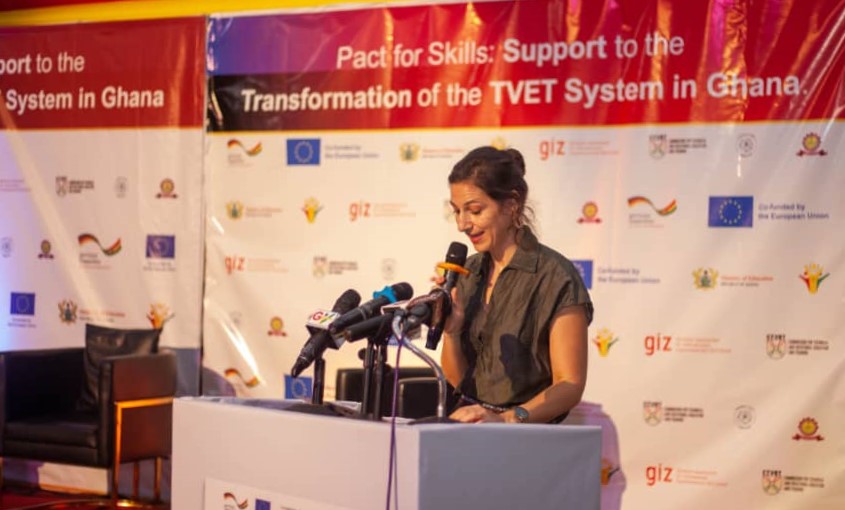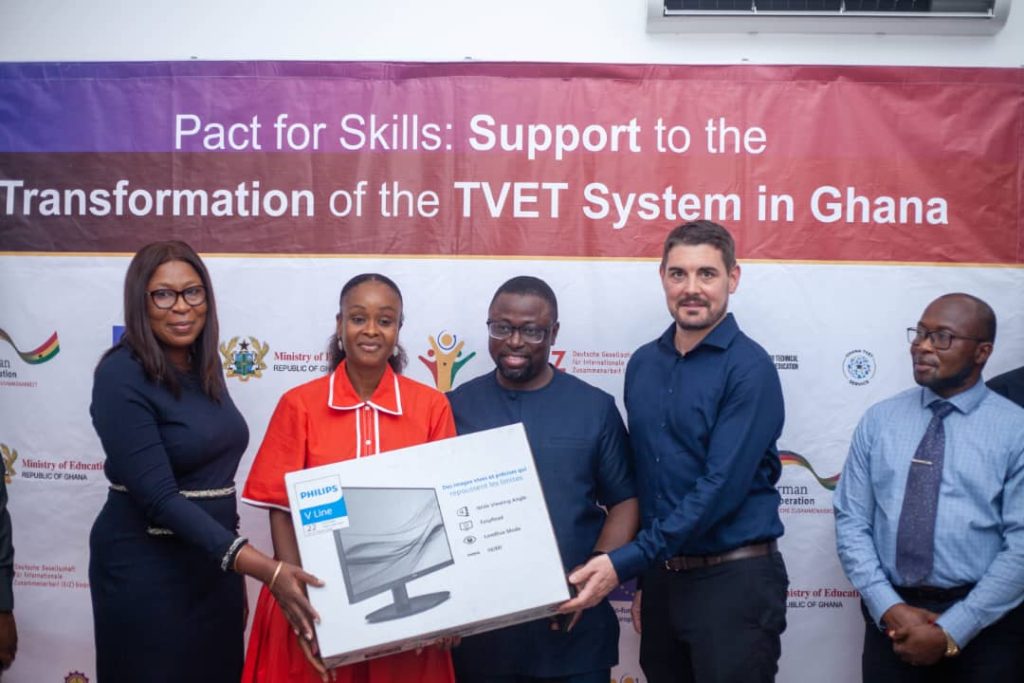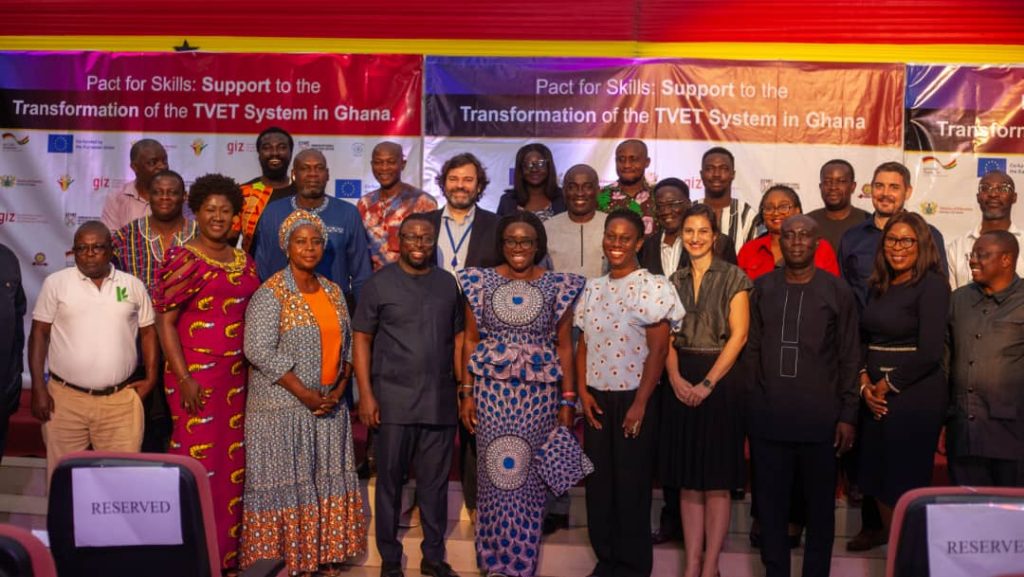Nii Martey M. Botchway
Accra, Nov 30, GNA – The German Cooperation (GIZ), through its Pact for Skills Project has donated a Secretariat and various items to the Sector Skills Bodies (SSBs), after a forum in Accra.
The items included 13 desktop computers, desktop organiser set, steel cabinet, laser printer, laptop computers, a projector, and Bluetooth speakers among others.
Speaking at the forum organised by the Commission for Technical and Vocational Education and Training (CTVET) in partnership with the GIZ, Ms Ramona Simon, Deputy Head of Development Cooperation at the German Embassy in Ghana, said, the German government’s investment to TVET initiatives in the country reflects its conviction of the potential of skills development to transform communities, empower individuals, and contribute to national prosperity.
Underscoring collaborative efforts to enhance skills development, she stated that Germany had long recognised the critical role that TVET plays in promoting economic growth.
“By partnering with Ghana, we aim to create a workforce that meets the evolving demands of the global economy, and we are proud to be at the forefront of initiatives that support nations in developing robust and responsive TVET systems,” she said.

Stressing the importance of industry involvement in TVET to ensure maximum success, Madam Gifty Twum Ampofo, Deputy Minister for Education in charge of TVET said, government considered it crucial to forge mutually beneficial partnerships with the private sector.
The Minister who revealed government’s vision to bridge the gap between education and needs of industry said, government, in collaboration with Germany, had invested $119,000 in completed projects with an additional €16 million fund under the Austrian government for the upliftment and upgrading of technical institutions.
“Through initiatives like apprenticeship, curriculum development, and skills gap analysis, government aims to create a symbiotic relationship that benefits both students and employers,” she said.
“We are committed to making TVET education a global competitor,” she added.
Madam Twum-Ampofo who underscored government’s commitment to providing state-of-the-art facilities and resources to support skills development called on the private sector and industry players to support the government’s efforts at placing TVET at the center of training the next generation of the country’s labor force.
Operating under the Commission for TVET, the SSBs are made up of related industries that come together under a common structure to drive growth and competitiveness across the sector by focusing on exploration of business opportunities, innovation and capacity needs within the sectors.
The Pact for Skills Project is a four-year project to support the TVET sector.


GNA